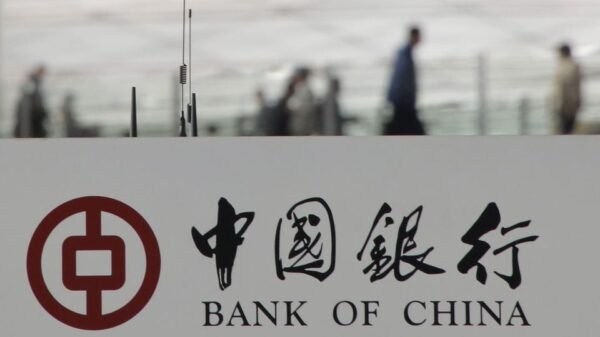The Benefits and Drawbacks of Investing in Emerging Markets
Explore the pros and cons of investing in emerging markets, and how you can build a diversified portfolio that includes these high-growth opportunities. Our expert analysis covers everything from the latest market trends to the risks and rewards of investing in emerging economies, so you can make informed investment decisions.
KEY TAKEAWAYS
- Emerging markets are countries with developing economies that have the potential to provide high returns on investment.
- The pros of investing in emerging markets include the potential for high returns, diversification of investment portfolios, and opportunities to invest in industries with high growth potential.
- The cons of investing in emerging markets include high volatility and risk due to political instability, currency fluctuations, and lack of regulation and transparency.
- Before investing in emerging markets, it is important to conduct thorough research, consult with a financial advisor, and carefully assess the risks and potential rewards.
- Investors should consider diversifying their portfolios and adopting a long-term investment approach to manage the risks associated with investing in emerging markets.
Investing in emerging markets can be a great way to diversify your portfolio and potentially generate higher returns. However, it’s important to understand the unique risks and opportunities associated with these markets before making any investment decisions. This article will explore the pros and cons of investing in emerging markets, including the potential for high growth and returns, as well as the risks of political instability, currency volatility, and less developed regulatory frameworks. You’ll also learn strategies for mitigating these risks and identifying promising investment opportunities in emerging markets. Whether you’re a seasoned investor or just starting, understanding the opportunities and challenges of investing in emerging markets is essential for building a successful investment portfolio. So, let’s dive in and explore the fascinating world of investing in emerging markets.
Background
Investing in emerging markets is an increasingly popular investment strategy for investors looking to diversify their portfolios and capitalize on high-growth opportunities. Emerging markets are countries that have experienced rapid economic growth and development but have not yet reached the level of advanced economies. These markets are characterized by large populations and fast-growing economies, which can provide investors with higher potential returns and greater diversification benefits than other markets.
Thesis statement: Investing in emerging markets can provide investors with higher potential returns and diversification benefits, but it also carries significant risks that must be carefully managed.
Benefits of Investing in Emerging Markets
One of the primary benefits of investing in emerging markets is the potential for higher returns than those available in more developed markets, such as the US or Europe. Emerging markets often have higher growth rates than developed markets, so investors can benefit from the opportunities for long-term capital appreciation. Additionally, emerging markets offer greater diversification benefits than developed markets, as investors can spread their risk across a variety of different markets and asset classes.
Risks of Investing in Emerging Markets
Investing in emerging markets carries several risks that must be carefully managed. These include political risk, currency risk, and liquidity risk. Political risk refers to the risk that a country’s government could change or become unstable, which could harm investments. Currency risk refers to the risk that the value of a currency could decline, which could reduce the value of investments. Liquidity risk refers to the risk that assets may not be able to be quickly converted into cash. Additionally, emerging markets are often less regulated and more volatile than developed markets, making them more prone to market turbulence.
Overall, investing in emerging markets can provide investors with higher potential returns and diversification benefits, but it also carries significant risks that must be carefully managed. Investors should do their research and consult with a financial advisor to ensure they understand the risks associated with this type of investment.

Photo:
Reuters
Pros of Investing in Emerging Markets
- Potential for high returns
Higher Returns than Developed Markets
Investing in emerging markets can offer investors the potential for higher returns than those available in developed markets. Emerging markets are generally less stable than developed markets and thus present investors with the opportunity to make higher gains. Emerging markets can also offer investors access to new and potentially lucrative markets which can yield higher returns.
Real World Example
For instance, India has been one of the fastest-growing emerging markets in recent years. According to the World Bank, Indian GDP growth averaged 7.6% between 2013 and 2017, making it one of the highest-growth economies in the world. This has enabled investors to capitalize on the high growth potential of the Indian market and make significant returns on their investments.
- Diversification Benefits
Diversifying a Portfolio
Investing in emerging markets can also help investors diversify their portfolios. By investing in multiple emerging markets, investors can spread out their risk and reduce the volatility of their investments. This can help investors mitigate the risk of investing in any one particular market and enable them to gain exposure to a wider range of markets.
Real World Example
For example, a portfolio that invests in both developed and emerging markets has been shown to perform better over the long term than a portfolio that only invests in developed markets. According to the International Finance Corporation, a portfolio that contains both developed and emerging markets has outperformed a portfolio of only developed markets by 3.2% over 10 years.
- Growth Potential
Fast-Growing Economies
Emerging markets also have the potential to grow at a faster rate than developed markets. As emerging markets are generally less stable than developed markets, they can experience rapid growth in a short amount of time. This can lead to high returns for investors who can capitalize on these growth opportunities.
Real World Example
For instance, China has experienced significant growth in recent years. According to the World Bank, China’s GDP growth averaged 6.9% between 2013 and 2017, making it one of the fastest-growing economies in the world. This has enabled investors to capitalize on the high growth potential of the Chinese market and make significant returns on their investments.
Cons of Investing in Emerging Markets
High volatility and risk
Investing in emerging markets can be much riskier than investing in developed markets. Emerging markets tend to be more volatile due to their smaller size and less established economic and political systems. This can be especially true when compared to the stability of developed markets.
For example, the Indian stock market has been highly volatile in recent years due to its dependence on foreign capital flows, currency movements, and political uncertainties. In 2018, the Indian stock market experienced a sharp decline of nearly 10%, primarily due to increased global trade tensions and a reduction in foreign investments.
Political and Economic Instability
Political and economic instability in emerging markets can also affect investments. This can include a wide variety of factors, from currency fluctuations and political turmoil to economic downturns. In some cases, these factors can cause investors to lose money on their investments.
For example, the Turkish lira experienced a sharp decline in 2018 due to a combination of political and economic factors. This included increased geopolitical tensions, a decrease in foreign investments, and a weakening of the Turkish economy. As a result, investors in the Turkish stock market were hit hard, with the Turkish stock market falling over 10% in value.
Currency Risk
Currency risk is another major factor to consider when investing in emerging markets. This involves the risk of the local currency depreciating, which can lead to losses for investors. For example, the Brazilian real experienced a sharp decline in 2018 due to a combination of factors, such as a decline in foreign investments and political instability. As a result, investors in the Brazilian stock market saw their investments depreciate.

Photo: EVAN BUHLER
Real World Scenarios
Case Study 1: Successful Investment in an Emerging Market
Explanation of How an Investor Successfully Invested in an Emerging Market
Investing in emerging markets is a potentially profitable activity, as long as investors do their due diligence and understand the risks associated with the market. This case study will look at how one investor successfully invested in an emerging market.
The investor first researched the market in question, evaluating the potential risks and rewards. This included an analysis of the macroeconomic environment, a review of the political and legal systems, and an assessment of the currency and financial infrastructure.
The investor then identified specific companies in the emerging market that had the potential to yield a high return on investment. After researching the companies, the investor chose to invest in a company that produced high-end technology products.
The investor also had a firm understanding of the local market dynamics, so they were able to effectively price the company’s products to maximize profits. The investor also used hedging strategies to protect their investments from the risks of unstable currencies.
Lessons Learned from the Successful Investment
The investor in this case study was successful due to their thorough research and understanding of the emerging market. They chose a company with a high growth potential, and they were able to price its products appropriately to maximize profit.
The investor also took precautions to hedge against any risks associated with investing in an emerging market. This included diversifying their investments across different sectors and currencies, as well as using hedging strategies to protect against currency fluctuations.
By understanding the risks associated with investing in an emerging market, and taking the necessary steps to reduce those risks, investors can potentially reap the rewards of investing in this lucrative market.
Case Study 2: Unsuccessful Investment in an Emerging Market
Explanation of How an Investor Unsuccessfully Invested in an Emerging Market
Investing in emerging markets can be a lucrative activity, but it can also be risky if investors do not adequately research the market. This case study will look at how one investor unsuccessfully invested in an emerging market.
The investor in this case study did not conduct adequate research on the market before investing. They did not assess the macroeconomic environment, or review the political and legal systems in the region. They also failed to understand the local market dynamics, so they were unable to appropriately price the company’s products to maximize profits.
In addition, the investor did not use any hedging strategies to protect their investments from the risks of unstable currencies.
Lessons Learned from the Unsuccessful Investment
The investor in this case study was unsuccessful due to their failure to properly research the market before investing. They did not understand the risks associated with investing in an emerging market, and they did not take the necessary steps to reduce those risks.
This case study serves as a reminder that investors should always conduct thorough research on any market they plan to invest in and use hedging strategies to protect their investments against currency fluctuations and other risks. By understanding the risks associated with investing in an emerging market, and taking the necessary steps to reduce those risks, investors can potentially reap the rewards of investing in this lucrative market.
Final Thoughts
The decision to invest in emerging markets can be a difficult one. There are both advantages and disadvantages to consider. On one hand, emerging markets can provide higher returns than developed markets and allow investors to diversify their portfolios. On the other hand, there is a higher risk of volatility and lack of liquidity. Ultimately, the decision to invest in emerging markets rests with the individual investor. They must consider their own risk tolerance, investment goals, and strategy before investing. Investing in emerging markets can be a great way to enhance returns, but it’s important to understand the risks and rewards involved. With the right research, knowledge, and preparation, investors can make the most of their investments in emerging markets.
































































Comment Template